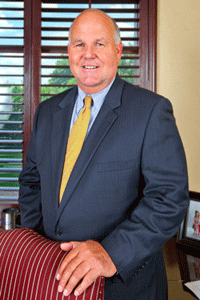
At the State Auditor’s Office, we focus on two primary matters – accountability and transparency. To achieve these two objectives, our work must be beyond reproach and the entanglement of politics.
Ours is a constitutionally-created, independent office with the principal purpose to examine and inspect whether public officials properly expended public funds.
The constitution names the State Auditor before the Attorney General. We are not agents of the Attorney General and we do not work for the Attorney General.
Our audits examine public records. We look at how public funds are spent. A finding of probable fraud, waste, or abuse is only stated when fully supported by financial records and other evidence.
The Special Investigative Audit of the Lead Impacted Communities Relocation Assistance Trust (LICRAT) was a review of public documents to determine if the LICRAT Board complied with state law in the expenditure of public funds. Special Audits differ from other types of audits because we are not required to conduct these audits in accordance with government auditing standards.
A Special Audit must be requested and conducted when financial mismanagement is believed to have occurred. The LICRAT Special Audit was initially sought by for U.S. Senator Tom Coburn. The only reason to involve the AG was because his office is one of five statutorily permitted ways to request a Special Audit. The audit was conducted on behalf of Oklahoma taxpayers.
The former attorney general acted improperly when he shared the contents of the audit report with the subject of the audit. The impropriety was further compounded when he refused to share the audit with the people who paid for it – the taxpayers of Oklahoma.
The LICRAT audit wasn’t about Scott Pruitt, left-wing environmentalists, Andy Lester, or politics. As the State Auditor, I have taken the position that the people of our state deserve to know why the LICRAT Board spent over $3.6 million on a project when the cost could have been less than $600,000.
If, as Mr. Pruitt’s spokesman stated, the audit was “shoddy,” then release it so the public can make that determination. If, as Mr. Lester stated, the audit report determined “no direct evidence of a conspiracy against the state,” then release the audit so the public can make that determination.
The State Auditor is the fact finder, not the prosecutor. The sole discretion to prosecute is always retained by the prosecutor.
The only issue here is when the prosecutor determines not to proceed – don’t cover up the issue by withholding a public document, paid for with public funds, and conducted on behalf of the public.
Audits are complicated. Many times, fraud and embezzlement are complicated. Often audits are confusing to prosecutors who aren’t confident they can sufficiently explain it to a jury in order to obtain a guilty verdict. As such, much white-collar crime goes unprosecuted.
I have confidence in the work product of our office, its people, and their professionalism. We stand by the courage of our convictions while others cast aspersions on the reputation and integrity of those who favor accountability and transparency.
Let the Audit Speak for itself.
NOTE: Oklahoma State Auditor Gary Jones doesn’t issue many news releases. As auditor, he has consistently taken the position that an audit should speak for itself. Since taking office in 2011, Gary has issued 15 news releases, of which, four were about a specific audit.